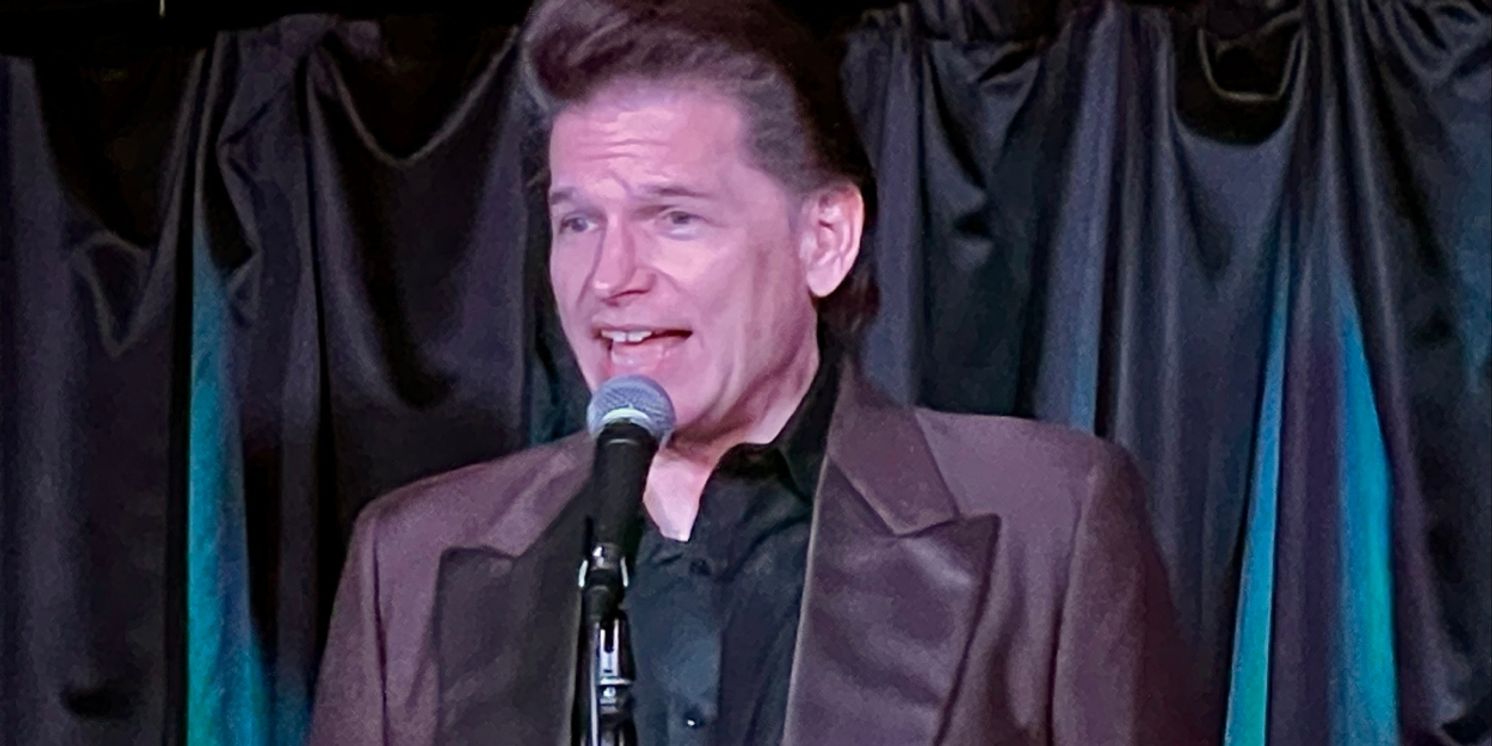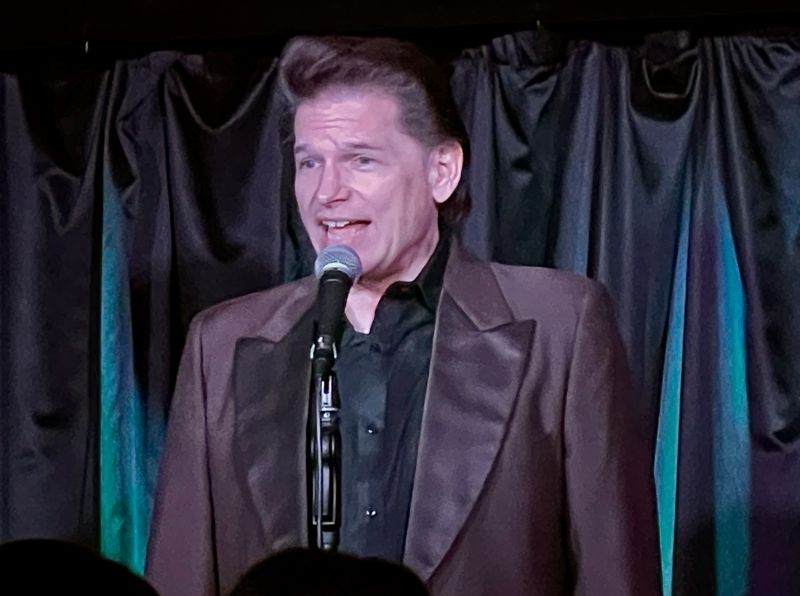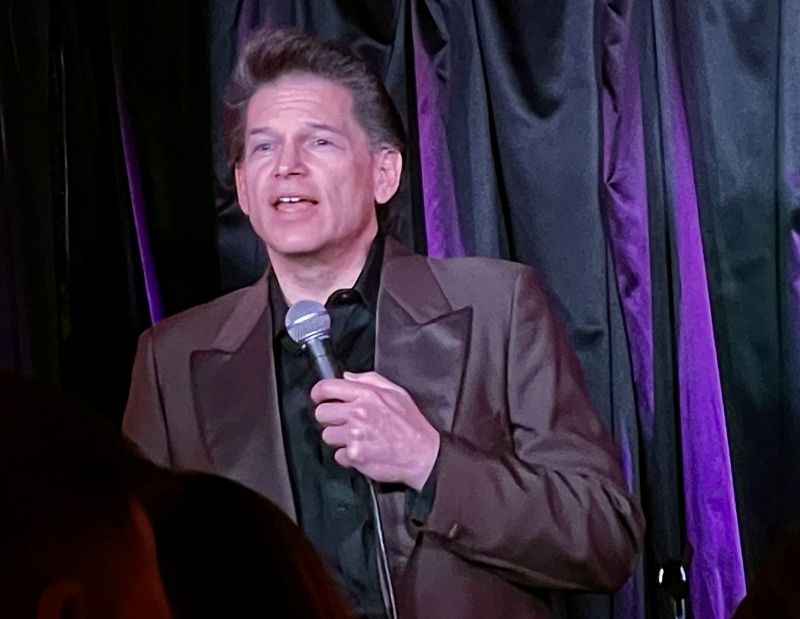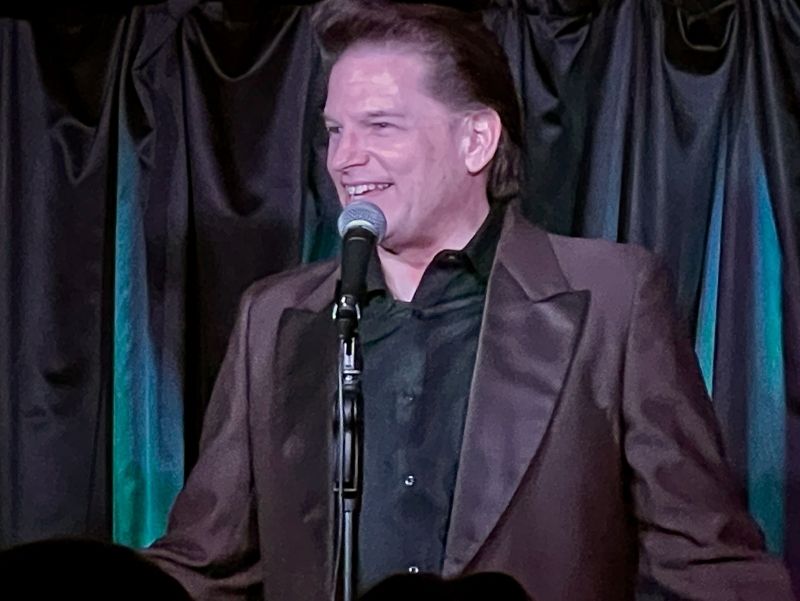Review: DORIAN WOODRUFF Goes Straight for the Heart in THE LYRICS OF ALAN AND MARILYN BERGMAN at Pangea
Dorian Woodruff Salutes the Bergmans at Pangea.

 Alan and Marilyn Bergman made a career of romance. As a lyricist team, they drew inspiration from their own long romance. They were married for 63 years. They wrote words for some of the classiest theme songs in motion picture history, including films like In the Heat of the Night, The Thomas Crown Affair, The Life and Times of Judge Roy Bean, Same Time, Next Year, The Promise, Tootsie, Best Friends, Shirley Valentine, and Yentl. They gave Broadway one of its most enduring diva ballads, "Fifty Percent" from Ballroom. And on television, they left us with some classic theme songs, including those for Maude, Good Times, and Alice. If they had written nothing besides the lyric of "The Way We Were" they would still be placed in the pantheon of great lyricists.
Alan and Marilyn Bergman made a career of romance. As a lyricist team, they drew inspiration from their own long romance. They were married for 63 years. They wrote words for some of the classiest theme songs in motion picture history, including films like In the Heat of the Night, The Thomas Crown Affair, The Life and Times of Judge Roy Bean, Same Time, Next Year, The Promise, Tootsie, Best Friends, Shirley Valentine, and Yentl. They gave Broadway one of its most enduring diva ballads, "Fifty Percent" from Ballroom. And on television, they left us with some classic theme songs, including those for Maude, Good Times, and Alice. If they had written nothing besides the lyric of "The Way We Were" they would still be placed in the pantheon of great lyricists.
They wrote with a "who's who" of the best songwriters ever, including Marvin Hamlisch, Neil Diamond, Lew Spence, Billy Goldenberg, Dave Grusin, Henry Mancini, Maurice Jarre, Johnny Mandel, David Shire, John Williams, and Mark Isham. But their most fertile collaboration was with composer Michel Legrand, with whom they wrote a string of hits that have become essential standards. The Bergmans were awarded 3 Academy Awards, 2 Grammys for Song of the Year, 4 Emmys, and were inducted into the Songwriters Hall of Fame.
A Bergman love song was never about heart-fluttering, young love. Their songs tended to concentrate on the sort of love that stood the test of time. They were about people who had been kicked around by love and were still willing to wear their hearts on their sleeves. If music can be said to have a season, the Bergman's would be autumn. Their songs were often bittersweet and tentative and full of reminiscences of golden times. A romantic song by the Bergmans was always painfully aware of the ticking of the clock. For Marilyn Bergman, that clock ran out last January. And with her passing, artists are taking the moment to celebrate the work of these extraordinary songwriters..jpeg)
That is the task Dorian Woodruff set for himself last night in his show, DORIAN WOODRUFF: THE LYRICS OF ALAN AND Marilyn Bergman which opened in the intimate cabaret room at Pangea. Woodruff wisely didn't try to take in the epic scope of the Bergman's entire career. That would take hours and hours. Instead, he took a very personal approach and concentrated on the romantic and bittersweet moments of his own interesting life, moments in which the Bergmans had provided the soundtrack.
Dorian Woodruff is exactly the sort of crooner the Bergmans wrote for. His voice is warm and dextrous, his diction is perfect without being ostentatious, and he displays a wide emotional range. He found the rich subtext of the Bergman's romantic themes and made it about his own heart. He concentrated on three of the great loves of his life, and how the Bergman's songs accompanied those romances.
Using a great samba version of "Cinnamon and Clove" as an introduction, Dorian quickly launched into the Bergman's most famous song, "The Way We Were," to introduce the theme of talking about past amours., the first being a handsome man he met while on a summer-long idyll in Brazil - a tender romance with a time limit. He illustrated this long-ago memory with "Alone in the World," Summer Me, Winter, Me," and "The Trouble With Hello Is Goodbye." He wrapped up this story with "Mozart in the Dark," perfectly describing that moment of re-entering the world after a sweet escape.
Woodruff followed with one of the Bergman's rare up-tempo tunes, "Leave It All to Me," written with Paul Anka. In the song, he tells a story about witnessing a howlingly funny live television mishap. The story is much too good to give away here. The story segues into another great love, a man he met through another mishap at the Von Trapps Ski Lodge in Vermont (yes, THOSE Von Trapps), a mishap that lead to a 5-year romance. To underline this beautiful story, he sang a beautiful rendition of "What Are You Doing the Rest of Your Life?". But, as often happens, beautiful romances sometimes have ugly endings, as he illustrated with the heartbreaking "Where Do You Start?"

The last section of the show dealt with a romance in progress, one whose future is still uncertain. It is classic Bergman territory. "Every Now and Then," a very impassioned performance of "How Do You Keep the Music Playing?," and "Love Like Ours" dealt with the tremulous uncertainty of new love. Mr. Woodruff seemed at his most relaxed and most accessible in this section. He closed with one of the Bergman's first hit songs, the Frank Sinatra standard "Nice 'n Easy." Indeed, Dorian Woodruff made a difficult task look nice and easy. It is a tribute to his artistry.
Dorian had some wonderful support along the way. Musical Director Jon Weber, on the piano, provided some wonderful backup and truly shined in the moments when he took a solo or two. Also, director Lina Koutrakos gave the evening some very spare but necessary structure. The three had the gargantuan task of paring the giant Bergman catalog into an hour and fifteen-minute show. The result was something quite moving and quite hopeful. Woodruff, Weber, and Koutrakos are the be congratulated for constructing a tribute show that doesn't feel at all academic. They display the varied colors of Alan and Marilyn Bergman to great advantage.

To learn more about Dorian Woodruff, follow him on Instagram @dorianwoodrufff.
For more great acts at Pangea, go to pangeanyc.com.
Reader Reviews
Videos

